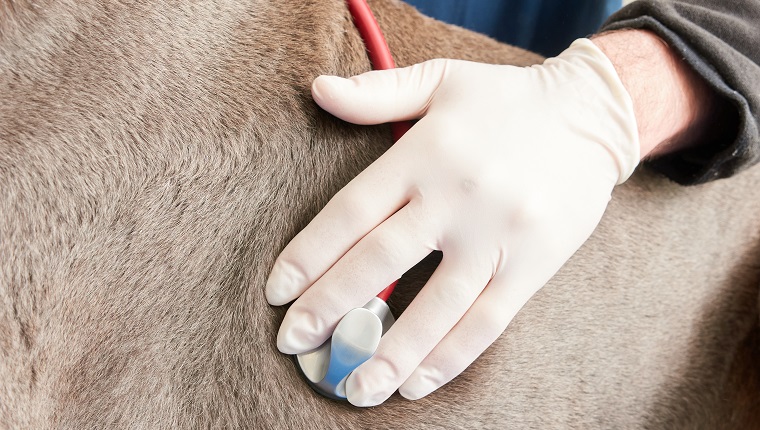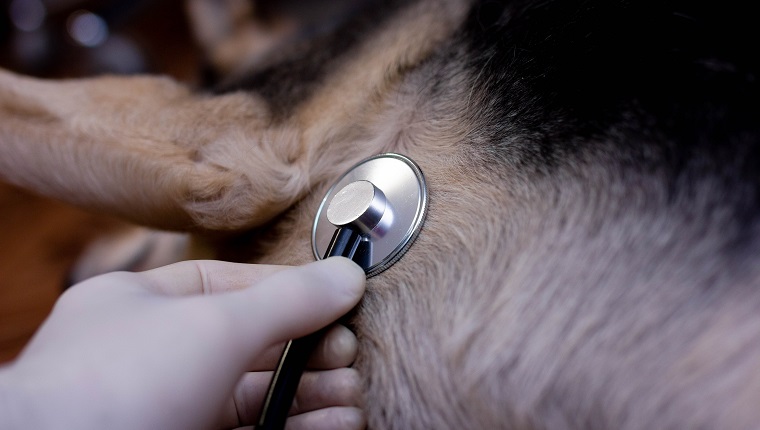Cardiac arrest in dogs, also referred to as circulatory arrest and cardiopulmonary arrest, is a potentially fatal medical condition that causes a dog’s blood circulation to stop due to the heart failing.
It can affect all dogs equally, regardless of breed, sex, or age. Unfortunately, the survival rate for dogs is estimated to be below ten percent.
If you see signs that your dog is having heart issues, then you must consult your veterinarian immediately. Here’s what you should know about the symptoms, causes, and treatments of cardiac arrest in dogs.
Symptoms Of Cardiac Arrest In Dogs
Cardiac arrest in dogs can produce a range of symptoms. Some of the most frequent symptoms and signs include:
- Pupils dilating
- Difficulties breathing and breathing abnormalities
- Losing consciousness
- Hypothermia
- Collapsing
- Skin turning blue (cyanosis)
Causes Of Cardiac Arrest In Dogs

Cardiac arrest in dogs can be caused by a number of different circumstances and issues. Some of the most common causes include:
- Heart disease
- Low oxygen levels in the blood
- Complications involving the use of anesthetic drugs
- Abnormal electrolyte issues
- Electric shock
- Trauma to the brain
Veterinary Treatments
If you see signs that your dog might be undergoing cardiac arrest, contact your emergency veterinarian straight away. Your vet will want to ask about the circumstances that could have prompted the condition.
Your vet will also carry out a number of tests to monitor your dog’s blood, pulse, respiratory system, and general responsiveness.
When it comes to treatment, it is vital to attempt to restart the heart and respiratory system. This might involve procedures carried out in the intensive care unit. Oxygen might also be used to help to try to restore the blood oxygen levels.
While the rate of recovering is low, dogs that do recover are likely to need to stay in hospital for a number of days. This is to monitor their condition and health and also deal with any complications that may arise.
Have you heard about a dog who survived cardiac arrest? How did they recover? Tell us all about it in the comments below.









